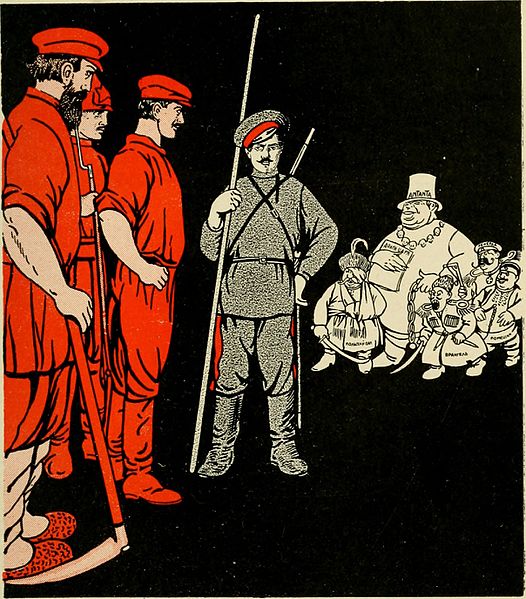October Revolution 1917 Centenary

The Russian Revolution of October/November 1917 is undoubtedly one of the most important events of the early twentieth century. While revolutions were not new (indeed Russia had already had one in spring 1917), the seizing of power by the Bolsheviks and the introduction of a communist state most certainly was. The revolution would result in Russian withdrawal from the First World War, the murder of the Russian monarchy and a civil war. Russia’s people and Empire would both be transformed by the Revolution that introduced a leadership driven by radical ideas and policies.
The revolution and the creation of a communist Russia, and ultimately the Soviet Union, would lead to one of the defining ideological power struggles in twentieth century, the legacy of which is still present today. It created a political entity that would represent a challenge to previous world orders even when its reality was much closer to the absolutism of previous political systems.
The political ideas and mission of the revolution would have a knock on effect on communist movements across the globe. In the years that followed the revolutionaries would be hailed as the start of a new world by some and the destruction of civilization by others. The ideas and actions of the 1917 leaders would be emulated by groups in Asia, South America and Africa.
One hundred years later the revolution is judged not by its successes in achieving immediate change but by its legacy. Russian communism did not survive the century despite its force and determination. However, the impact of the revolution has lasted well beyond Communist Russia providing an almost mythological legacy in its example of what radical change can bring. Art and literature were influenced just as much as political ideas and traditional ways of life by the revolution all of which are now part of the wider cultural fabric of European and World history.
Whether the Russian Revolution of autumn 1917 was a contributor to positive or negative change will continue to be debated however there is no denying that it was one of the most significant contributors to the identity of the 20th century – it truly was ‘ten days that shook the world’.

